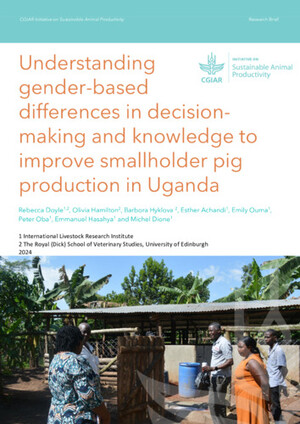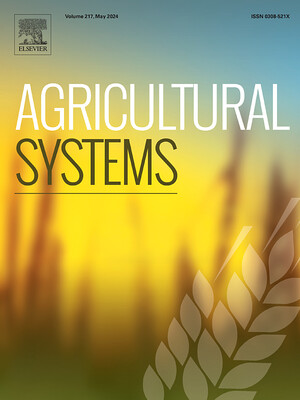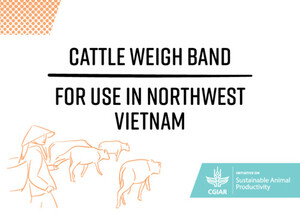
Food safety assessment and challenges along small-scale pig systems in Vietnam
Abstract
Food borne diseases (FBD) are an increasing global public health concern with
estimated 1 in 10 people falling ill every year from eating contaminated food causing
420,000 deaths. Diarrheal diseases accounted for more than half of the global
burden with children at especial risk (WHO 2015). Evidence on FBD in low and
middle income countries, including Vietnam, is still limited but the risk is considered
to be higher than in high income countries due to poor hygiene, inadequate food
production and storage, risky consumption habits, and weak legislation and
enforcement. For Vietnam, pork is an important component of the diet and accounts
for more than 70% of meat consumed: most (84%) is supplied by small and medium
scale farmers. Recent ILRI studies have demonstrated strong preferences of
Vietnamese consumers for fresh, un-chilled pork sold at conventional wet markets
but also increasing concerns over food safety have been expressed by urban
consumers. Existing food safety studies along the pig sector have focused on
assessment of hazards (mainly Salmonella) at a specific actor of the pork chain while
farm to fork approaches or studies measuring the impact of hazards to human are
limited. Since 2012 ILRI has implemented specific studies assessing food safety
issues including zoonoses along pig value chains in selected regions of Vietnam.
This included risk assessments of food safety hazards in pork such as Salmonella
along a more peri-urban value chain with mainly exotic pigs or their crosses (Hung
Yen province). In addition, we assessed the presence of two major zoonoses
(trichinellosis and cysticercosis) in a rural indigenous pig value chain in the Central
Highlands of Vietnam. Results for Hung Yen show a high presence of biological
hazards (e.g. 43% pork cuts at market are Salmonella contaminated). Key challenges
include poor slaughter and meat handling hygiene (eg. floor slaughter) aligned with
low awareness on related health risks among interviewed actors. Another challenge
is to identify feasible incentives to motivate change of behavior and practice of actors.
For the native pig system (Central Highlands) sporadic infections with trichinellosis
and cysticercosis were found. Key challenges include here predominant risky farm
management practices (free roaming of pigs) but also very low awareness and
knowledge on zoonoses of native pig producers who are often members of poor
ethnic minorities.
Citation
Unger, F., Hung Nguyen-Viet, Sinh Dang-Xuan, Phuc Pham-Duc, Pham Van Hung, Lapar, L., Marshall, K., Duong Van Nhiem, Makita, K. and Grace, D. 2016. Food safety assessment and challenges along small-scale pig systems in Vietnam. Presentation at the first joint conference of the Association of Institutions for Tropical Veterinary Medicine and the Society of Tropical Veterinary Medicine, Berlin, Germany, 4–8 September 2016. Nairobi, Kenya: ILRI.










